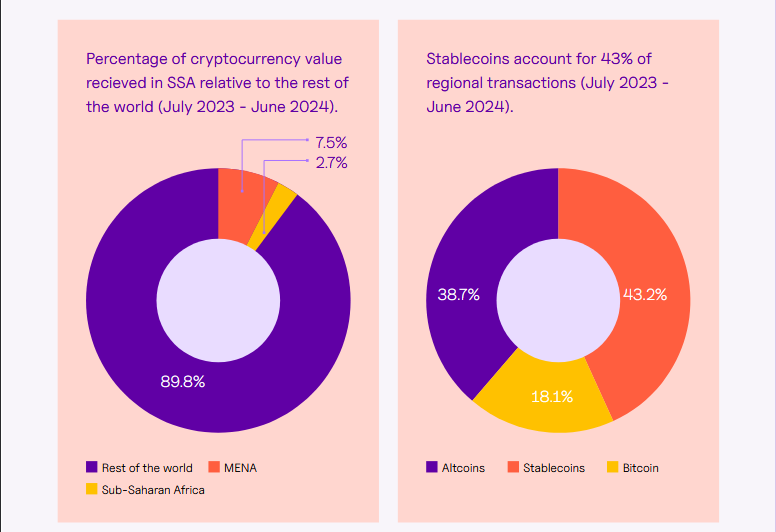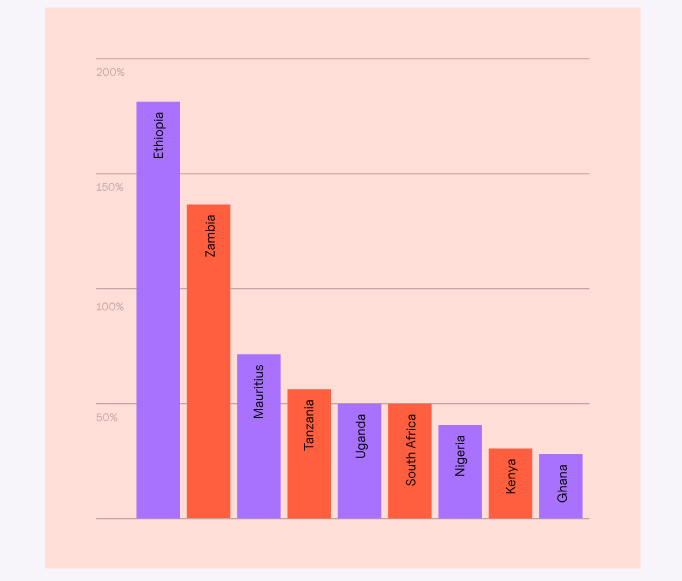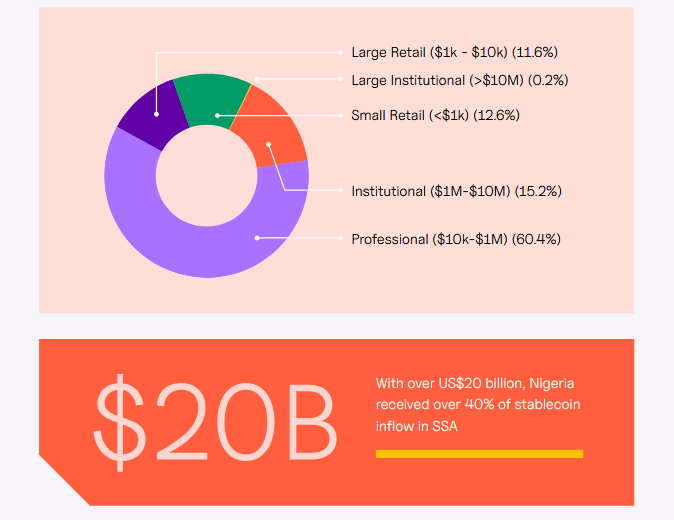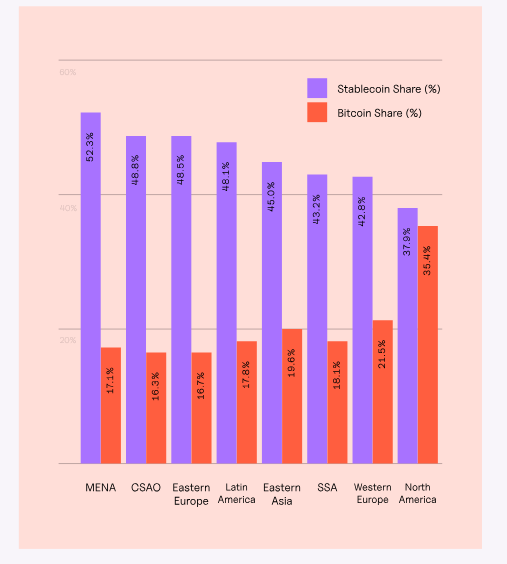In Brief
-
OTC crypto trading offers Africa secure, compliant, large-volume transactions while reducing FX volatility through stablecoin settlements.
-
Regulatory shifts in South Africa, Nigeria, and others are legitimizing OTC desks, attracting institutional adoption.
-
Local stablecoins and programmable finance are fast-tracking cross-border payments and financial inclusion.
Quidax’s recent report titled: The Rise of OTC and Stablecoins- Africa’s Quiet FX revolutions, reveals an ongoing shift as Over the Counter(OTC) crypto trading, stablecoin payments and a shifting regulatory stand reshape Africa’s approach to digital assets.
Within less than two decades, stablecoins account for at least 43% of the continent’s total crypto volume. Most digital assets, like stablecoins, offer business, organizations and mostly Africa’s informal economy with secure, compliant and cost-effective solutions that reduce remittance costs.
Today, we highlight how OTC crypto trading grew steadily within this shift, providing better utility than we initially thought.
The Strategic Surge of OTC Crypto Trading in Africa
For clarity, OTC crypto trading, unlike regular exchange trading, taps into a decentralized market where participants trade with assets not listed on formal exchanges. The consistent rise of local exchanges offering similar alternatives within the continent is fueled by global adoption. According to the report, global OTC markets have an impressive annual growth rate of 106%. The majority, driven by institutional and large-scale digital transactions.
Typically, this form of trading enables large-volume transactions without market price impact, often visible within public exchanges. The direct interaction between parties also adds several perks sought after within the African market.
CHECK OUT:Nigeria’s Crypto Boom: IMF Warns of FX Risks & Urges Tighter Regulation
For instance, local exchanges like Quidax utilize this method as a supplement, complementing their offering of deep liquidity. By nature, it operates under large volumes, enabling firms to facilitate large transactions of crypto and stablecoins without drastically moving prices(spillage). This also avoids fragmented executions common within public exchanges.

Licensed OTC desks conduct rigorous KYC/AML checks and enforce counterparty whitelisting. Quidax applies such features, reducing friction with Nigeria’s SEC and South Africa’s FSCA requirements. In a nutshell, it reassures treasurers and compliance teams that operations are well monitored and documented.
Finally, a vital aspect is that OTC crypto trading is a viable FX volatility solution. Since most trades are negotiable, businesses can lock in a single rate using stablecoins, shielding them from wild fluctuations common in most African regions.
Stablecoins: The Engine of Africa’s Practical Crypto Adoption
Throughout 2025, stablecoin payments have become the hype of the crypto market. Granted, Bitcoin has made several strides, briefly achieving $120K valauation, but in Africa, utility trumps value and USDT, USDC has taken the grown. The report showcases that stablecoin(43%) has surpassed Bitcoin(18.1%) use within the country. Nigeria alone received more than 40% of Sub-Saharan Africa’s stablecoin inflows, alongside Ethiopia at 180% YoY growth and Zambia above 100% YoY growth.


The appeal of stablecoin payments lies in their utility. To many, it’s a means to hedge against inflation and devaluations with dollar-pegged stablecoins like USDT and USDC offering a vital store of value. With Nigeria, Kenya, and South Africa’s local stablecoins(cNGN, cKES and ZARP) cross cross-border crypto settlements are made easier within the country. This does piggyback on USDT/USDC success within the secore, but its near instant settlements, reduced remittance costs lured many businesses to integrate local payment systems.
Case studies like NevaCommerce’s partnership with Quidax demonstrate settlement times from up to 5 days to under an hour within Quidax’s OTC desk.
Regulatory Shifts: From Skepticism to Structured Frameworks
Africa’s regulatory landscape has taken a significant shift from categorizing crypto as dangerous, issuing warnings or outright banning it to adopting its practical utility. South Africa, alongside Mauritius, became among the first pioneers for a pro-crypto narrative within the continent. Within two years, South Africa has continued to refine its regulations on issuing crypto-asset licenses, acknowledging digital assets and establishing a formal regulatory body.

Likewise, Nigeria, despite banning cryptocurrency, recently enacted its major shift with the SEC having full regulatory authority over digital assets under the Investment and Securities Bill. The country has a substantial crypto user base with over 50 million youths actively participating in the space. To prevent any crises like its recent $2 million suspicious crypto transactions, the SEC has launched a full-scale operation to educate and regulate its space.
Countries like Kenya and Ghana are exploring licensing frameworks and regulatory sandboxes, moving to clear their grey stance finally. While fragmentation remains a core challenge with a few nations having different opinions (Algeria, Tunisia and Egypt), the steady shift is noticeable.
Platforms operating with licenses in key jurisdictions (like Quidax’s licenses in Canada and Nigeria) offer global businesses compliant gateways into African markets.
The rise of Central Bank Digital Currency (CBDC) and stablecoin explorations across Africa further indicates a recognition of digital assets’ potential. This might lead to hybrid models integrating decentralized innovation with centralized oversight.
Solving Real Problems
The report wraps up neatly, showcasing a predictable tangent within Africa’s current trajectory. The growing rise of local stablecoins and OTC crypto trading will give rise to local APIs and innovators, fast-tracking financial inclusion within Africa. Programmable finance has taken on new meaning, and platforms like Quidax and Busha are paving the way in terms of regulations and adoption.
As Buchi Okoro, CEO of Quidax, aptly noted:
“Over the next couple of years, I think there will be increased institutionalization in the space, as regulatory frameworks mature across different markets, OTC Desks here will most likely adopt more standardized practices, and focus a bit more on things like better risk management and stronger compliance practices.”
